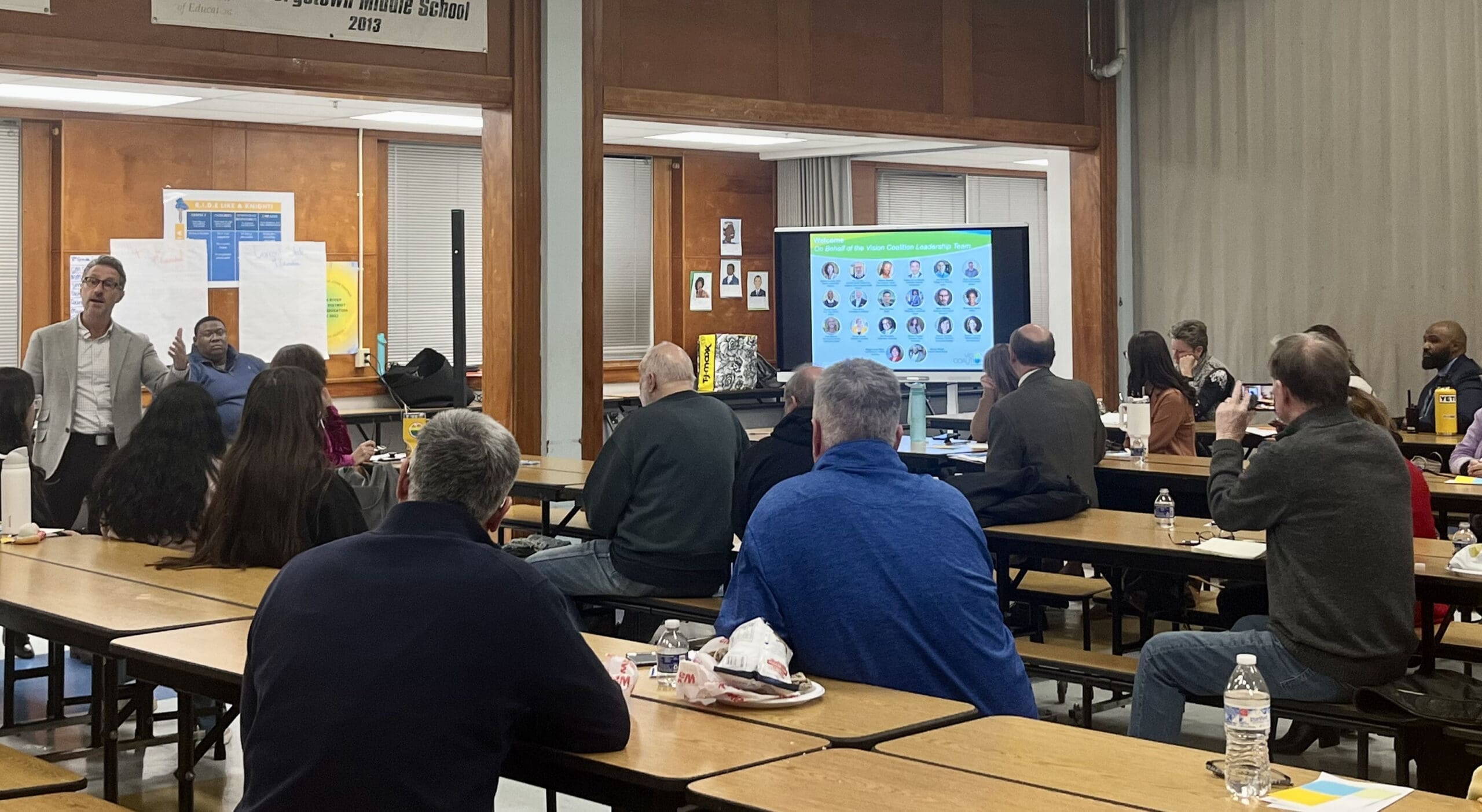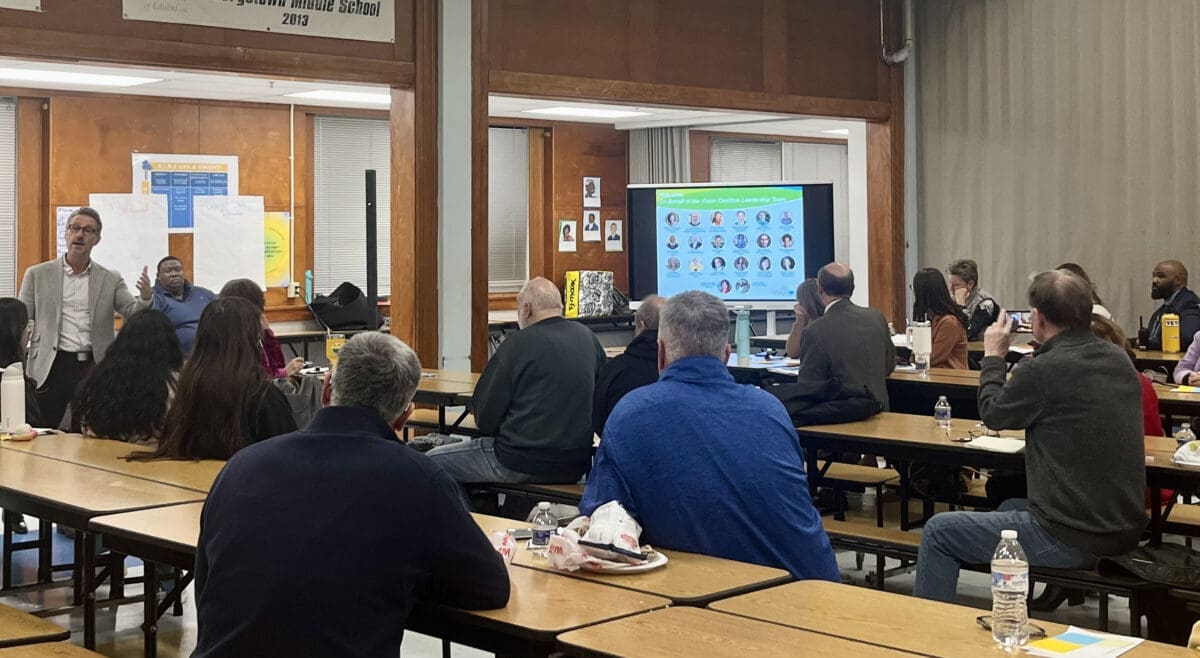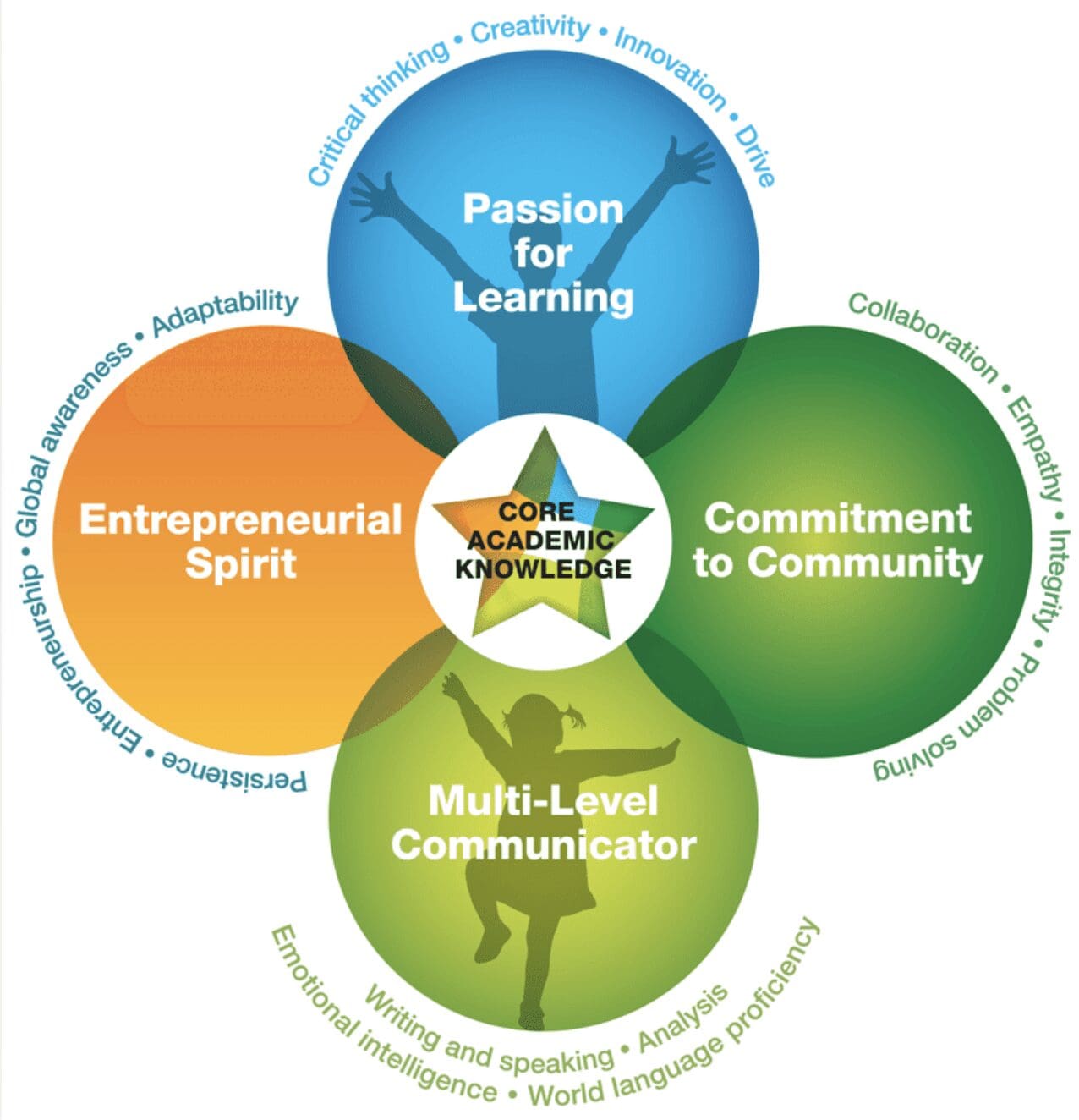

Vision Coalition has one of its five town halls left, engaging the community with their thoughts on education in Delaware.
A few dozen parents of students, educators and concerned community members shared their frustrations with education in Delaware and hopes for the future during a town hall Wednesday night.
The few students in the crowd received applause and praise from the crowd for caring enough to be involved in changing the status quo of a system still funded by an 80-year-old formula.
It was the penultimate meeting in a series of five sponsored by the Vision Coalition of Delaware.
“Tonight is about getting feedback from you that will help us as a leadership team develop our vision for the next 10 years,” said Mark Holodick, secretary of education.
Attendees were asked to write a word on one sticky note describing the education now, and another word on a different sticky note with how they hope state education evolves.
For the first prompt, people wrote words such as disconnected, disorganized, ambitious, overwhelmed, underfunded, dismal, underfunded, struggling, vulnerable and trauma.
For the second, they said trauma-informed, collaborative, supportive, equitable, empowered, evolved, balanced, transparent, united, inspiring and appropriately-compensated.
Attendees were then asked to discuss the Vision Coalition of Delaware’s “North Star,” which its leaders describe as something that “guides our journey on the path to excellence.
It’s designed to show what students need to be, know, have and do for a lifetime of success.
“It serves as the beacon for our vision to improve public schools for every Delaware student,” the coalition’s website says. “Students will need core academic knowledge to provide a foundation for learning, yet they will also need skills and attributes that go beyond academics.”
Attendees seemed to agree that everything in the diagram is crucial, but many highlighted the need for life skills such as budgeting and communication.
Some also stressed the importance of community –encouraging students to give back and successful schools having strong partnerships with community organizations.
Among other topics were the shortage of teachers, multi-language educators, and the need for early intervention for struggling young learners.
Some audience members talked about how many industries are global, so language immersion programs and opportunities to study abroad are beneficial.
The public meetings were organized by Vision Coalition, a public-private partnership of Delawareans working to improve public education. It includes education, community and legislative leaders.
The coalition’s leadership developed the Vision 2015 plan in 2006. Ten years later, with Delaware adopting more than 75 percent of its recommendations, Vision Coalition helped create a new 10-year plan.
Holodick said one of the strongest elements of that first plan was pathways, which allow students to specialize in courses with a specific career or field in mind. Many schools have adopted them
The town halls are a part of an ongoing process to help Delaware create the next 10-year plan.
The final Vision Coalition Town Hall is a virtual one set for Monday, Feb. 27 at 6 p.m. Register for it here.
There was little discussion about the school funding system and the recent 200-page report from American Institutes for Research that recommended the state invest between $500 million to $1 billion more in public education.
RELATED: Adding $500M+ more into education likely matter for legislature
RELATED: Charter schools hope report sparks more transparent funding
RELATED: Report: State should put more $$$ into schools, allot by student need
One aspect of the report that did get attention was that certain populations of students, such as English language learners, receive about 10 times more funding in other states.
Meeting organizers pointed out that the landmark funding report will be presented to the state legislature March 7 at 11 a.m. in a Senate Education and House Joint Committee meeting. It can be watched here.
This is the first time since the report was released to the public in December that it will be presented to the General Assembly.


Raised in Doylestown, Pennsylvania, Jarek earned a B.A. in journalism and a B.A. in political science from Temple University in 2021. After running CNN’s Michael Smerconish’s YouTube channel, Jarek became a reporter for the Bucks County Herald before joining Delaware LIVE News.
Jarek can be reached by email at [email protected] or by phone at (215) 450-9982. Follow him on Twitter @jarekrutz and on LinkedIn
Share this Post










